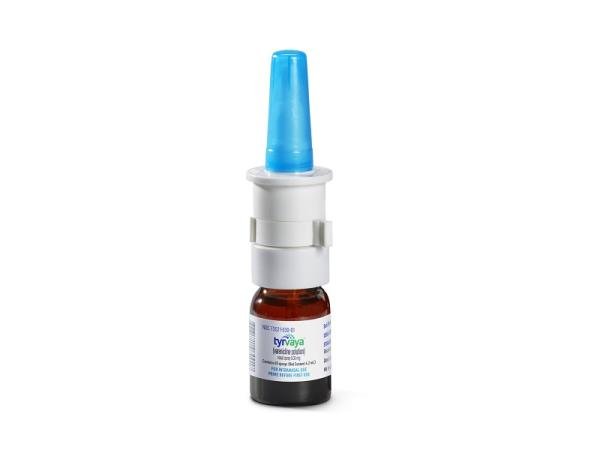Tyrvaya and Alcohol/Food Interactions
There is 1 alcohol/food/lifestyle interaction with Tyrvaya (varenicline).
Varenicline Food/Lifestyle
Moderate Food Interaction
GENERALLY AVOID: Varenicline may enhance the effects of alcohol as well as alter the way an individual reacts to alcohol. During postmarketing use, some patients have reported experiencing increased intoxicating effects of alcohol while taking varenicline. In addition, some reported cases of neuropsychiatric events, including unusual and sometimes aggressive behavior directed toward oneself or others, may have been worsened by concomitant use of alcohol. These events were often accompanied by amnesia.
MANAGEMENT: Patients should be advised to limit their consumption of alcohol until they know whether varenicline affects their tolerance for alcohol, and to exercise caution driving or operating machinery until they know how quitting smoking and/or varenicline may affect them. Patients should immediately stop taking varenicline and contact their physician if they develop agitation, hostility, aggressive behavior, depressed mood, or changes in behavior or thinking that are not typical for them, or if they develop suicidal ideation or behavior.
References (2)
- (2006) "Product Information. Chantix (varenicline)." Pfizer U.S. Pharmaceuticals Group
- FDA. U.S. Food and Drug Administration (2015) Drug Safety Communications: FDA updates label for stop smoking drug Chantix (varenicline) to include potential alcohol interaction, rare risk of seizures, and studies of side effects on mood, behavior, and thinking. Safety announcement. http://www.fda.go
Switch to consumer interaction data
Tyrvaya drug interactions
There are 65 drug interactions with Tyrvaya (varenicline).
Tyrvaya disease interactions
There are 5 disease interactions with Tyrvaya (varenicline) which include:
More about Tyrvaya (varenicline)
- Tyrvaya consumer information
- Check interactions
- Compare alternatives
- Pricing & coupons
- Reviews (45)
- Drug images
- Side effects
- Dosage information
- During pregnancy
- FDA approval history
- Drug class: cholinergic agonists
- Breastfeeding
- En español
Related treatment guides
Drug Interaction Classification
| Highly clinically significant. Avoid combinations; the risk of the interaction outweighs the benefit. | |
| Moderately clinically significant. Usually avoid combinations; use it only under special circumstances. | |
| Minimally clinically significant. Minimize risk; assess risk and consider an alternative drug, take steps to circumvent the interaction risk and/or institute a monitoring plan. | |
| No interaction information available. |
See also:
Further information
Always consult your healthcare provider to ensure the information displayed on this page applies to your personal circumstances.


